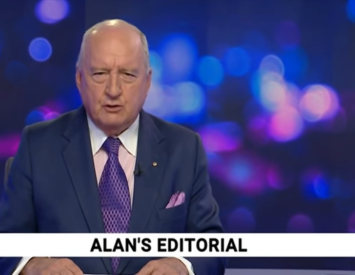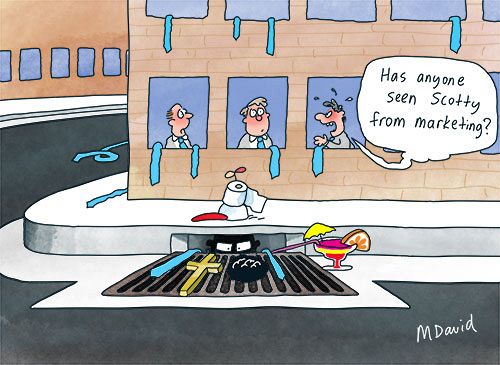Several members of the mainstream media are remaining silent over Scott Morrison's undemocratic Parliament closure, writes Dr Jennifer Wilson.
PRIME MINISTER Scott Morrison has over the last weeks consistently argued for the re-opening of borders, schools and businesses closed due to COVID-19 claiming that:
“...the best protection against the virus is to live with the virus, to live alongside the virus and to open up your economy.”
So it comes as a surprise to read that on the advice of medical experts, the Prime Minister has decided to cancel the next sitting of Federal Parliament due in the first two weeks of August, owing to the alleged health risks involved.
While it would be cavalier to dismiss the risks of physical engagement (though, there are ways of managing these), the Government’s singular lack of interest in setting up an online alternative for Federal Parliament is baffling. In the UK, for example, the Parliament has been using a combination of virtual and physical attendance since April and this arrangement has been extended until September to allow MPs who qualify to continue to participate remotely.
Everyone else in physical attendance observes social distancing and hygiene requirements. The European Parliament continues to function as do the parliaments of all European nations, using the same hybrid model as the UK.
As the President of the EU Parliament, David Sassoli, stated:
“Democracy shouldn't be stopped by a virus. We need the democratic process to help us overcome this emergency.”
Indeed, it appears that the only Western democracy to have abandoned its parliamentary function is Australia, under the governance of Scott Morrison.
Finance Minister Mathias Cormann dismissed all possibility of a virtual meeting, claiming that as “both the Speaker and the Senate President are from Victoria, they would not have been available in the Parliament to preside over proceedings”. Well, if we’re talking about a virtual meeting they would not have been expected to be physically available, so Cormann’s dismissal of the notion is a tad obscure.
Every other workplace in Australia, indeed the world, has had to adapt to the restrictions and challenges posed by COVID-19. The Federal Government and, most vocally, the Prime Minister have since day one urged “normality” on businesses, schools and particularly the states in the matter of border closures, emphasising the need to keep the economy functioning despite the possible effects on the wellbeing and health of citizens, as expressed by those who disagree with Morrison’s approach.
Yet here we are, with Federal Parliament exempting itself from the “normality” prescribed by the Government for everyone else.
It is simply not believable that a hybrid parliament such as those currently conducted in the UK and Europe cannot be organised for Australia. So, what is going on?
Related Articles
- Common sense must dictate COVID-19 response
- Post-pandemic cities: Urban life in the wake of COVID-19
- The global economic transformation after COVID-19
- Reasons behind America's catastrophic coronavirus death toll
- The future of the education system post-COVID-19
In 2018, Home Affairs Minister Peter Dutton declared that he has always seen Parliament as a disadvantage for the government of the day. Without Parliament, we have no means of holding governments to account and being held to account is what Dutton and Morrison regard as a disadvantage they prefer to live without.
Parliament scrutinises government activities and provides a forum for debate on national issues. An authoritarian populist government such as that overseen by Morrison does not welcome these democratic processes. A pandemic that offers the opportunity to use health concerns as a justification for the cancellation of Parliament is a blessing for such a government.
As other governments find ways to continue regardless of the virus, Morrison’s has seized upon it as an excuse to abandon an arm of our democracy and avoid scrutiny and accountability.
This is a situation made all the more alarming by the unwillingness of some of Australia’s mainstream media to question this abandonment of democratic process. For example, on ABC TV's Insiders on Sunday morning, journalists David Crowe, David Speers and Annika Smethurst appeared to unquestioningly accept the Government’s cancellation of Parliament.
They claimed variously that the global demand for the technology required to set up virtual sittings is great, so ramping it up is difficult for the Morrison Government. They also said that MPs are “super spreaders” of the virus and should stay at home, dismissing the option for hybrid sittings without once explaining why they are a viable option for other democracies, but not, apparently, this one.
There will have been virtually no parliamentary scrutiny of the Federal Government for five months and possibly longer. No journalist, whose task it is to speak truth to power, should excuse, minimise and normalise this dysfunctional and undemocratic circumstance.
It’s clear that Morrison can and will avoid Parliament whenever he can. Does he intend to cancel Parliament every time there is a fresh outbreak of the virus somewhere in the country? The Prime Minister does not believe that shutting down the country is an adequate response to the virus and yet he believes that shutting down the Parliament is.
We urgently need the journalist who will confront the Prime Minister with these ambiguities. The virus has given Morrison the circumstances dreamt of by a potential tyrant masquerading as a democratic leader.
We have rapidly progressed beyond the stage in our fading democracy where institutions remain notionally in place, though stripped of their power and meaning. We now find ourselves moving rapidly into a very dark place in which there is not even the pretence of upholding one of the core institutions of a liberal democracy: its Parliament and that body’s essential role in holding government accountable.
Dr Jennifer Wilson is an IA columnist, a psychotherapist and academic. You can follow her on Twitter @NoPlaceForSheep.
 This work is licensed under a Creative Commons Attribution-NonCommercial-NoDerivs 3.0 Australia License
This work is licensed under a Creative Commons Attribution-NonCommercial-NoDerivs 3.0 Australia License
Support independent journalism Subscribe to IA.















